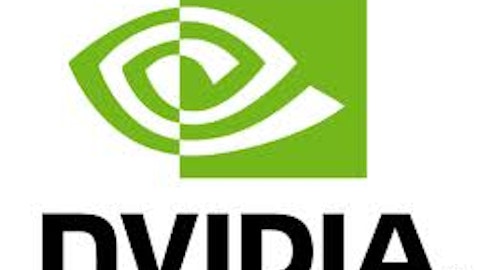Intel Corporation (NASDAQ:INTC) is one of the biggest companies in the tech industry, and a dominant force in PC processors. For decades, Intel’s chips have been featured in all sorts of desktop PCs, laptops and netbooks. However, the current decline in the PC market, along with the rise of competitors like Qualcomm, Inc. (NASDAQ:QCOM) and ARM Holdings plc (ADR) (NASDAQ:ARMH) in mobile computing, Intel finds itself in a relatively shaky position.
Intel’s Q4 results, as expected, showed a decline in profit and revenue. The company reported a net income of $2.5 billion for the quarter, which showed a 28% decrease from last year’s $3.5 billion. Earnings per share came out to $0.48 per share, compared to Wall Street’s expectation of 45 cents. While Intel didn’t do exceptionally well, it certainly didn’t underperform and the results didn’t produce any surprises.

Current position
Intel’s strongest division has been in making chips for laptops and notebooks. Paul Otellini, Intel’s CEO, recently said that the company has been facing some tough times due to the shift from laptops to tablets. He also said that the company did quite well in the declining PC market and will now push on to the smartphones and tablets industry.
The new Intel-powered ultrabooks will feature touchscreens, due to Windows 8’s new user interface. While the PC market may be declining, there are quite a lot of people who will go out and buy the upcoming touch-screen ultrabooks from Intel’s partners, such as Acer and HP.
Intel has already done some work in the tablets and smartphones industry, where Qualcomm has been one of the leading forces. Sources suggest that Intel has already planned a couple of smartphones, ultrabooks and tablets featuring its newest processor line that should be unveiled at the Mobile World Congress this month.
Intel’s future and growth
Even though Intel is one of the strong dividend paying companies, with a dividend yield over 4%, investors are looking for long term gains and are concerned over the company’s future. It is clear that Intel needs to step up its game in the mobile phones and tablets market, which will hopefully come after the Mobile World Congress this month.
The success of Windows 8 will be another crucial factor in the company’s future. Although, the PC market is fading with a slim chance of growth, certain people will continue to buy ultrabooks in the next couple of years; a place where Intel dominates.
ARM Holdings and Qualcomm have been in the tech industry for quite some time now, with the companies likely to show growth in upcoming years in this “PC Plus” era. Intel, on the other hand, will rely on 3 key ingredients for a successful future: its new, lower powered atom processor for smartphones, the lineup of atom processors in the current and upcoming Windows 8 tablets, and its 4th generation Core processor for ultrabooks.
Intel has already made an entry in smartphones with Motorola‘s Razr i, and Acer’s new Liquid C1 smartphone. While Qualcomm and ARM dominate the current mobile market, Intel might just push its way in, gaining a greater share. It all comes down to this month’s tech event, where new Intel based devices will be unveiled.
In the tablets market, Intel’s Clover Trail Atom processor is gaining a lot of popularity, as they are featured in HP’s Envy X2 tablet, Acer’s Iconia tablet and others. This is a strong growth opportunity for the company and if Windows 8 as a whole is successful, then more and more hybrids and tablets will be running the Clover Trail processor.
Intel clearly dominates in the ultrabooks market, and a 4th Generation Core processor is on its way. Not only will this improve the performance, but this will also improve battery life significantly, as the previous core processors couldn’t even last 3 to 4 hours.




